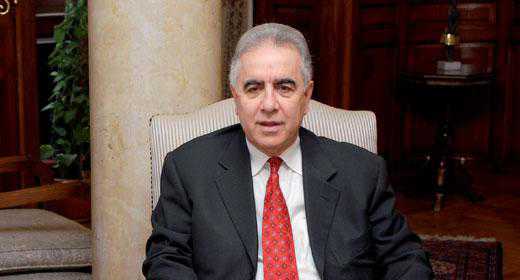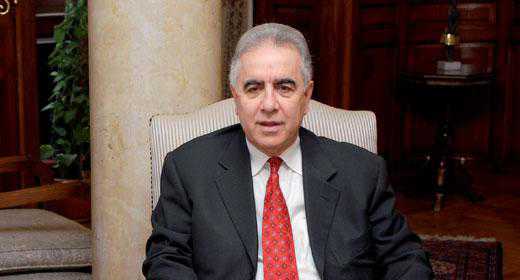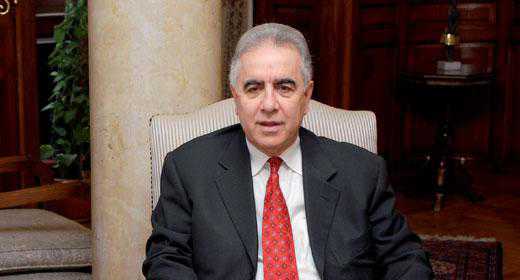
The U.S. Supreme Court asked the Obama Administration last October if it should review a Federal Appeals Court decision that had struck down a California law (Section 354.4) extending the statute of limitations on Armenian Genocide-era life insurance claims.
The U.S. Solicitor General, the lawyer representing the United States government before the Supreme Court, filed a response last week. He urged the Supreme Court not to hear the appeal, and let stand the Ninth Circuit Court of Appeals ruling that the California law “impermissibly” intruded into the federal government’s foreign relations powers.
Given Pres. Obama’s disappointing record of kowtowing to Turkey, particularly on Armenian Genocide issues, it is not surprising that the Administration’s brief went far beyond the question whether the Supreme Court should hear the appeal.
The U.S. Solicitor General erroneously claimed that:
— Contrary to the assertion of Armenian litigants, “California was not acting within an area of its traditional competence,” i.e., insurance regulation.
— The California law “intrudes upon substantial foreign affairs powers” of the federal government and leads to judgments “based on politically contentious events that occurred in the Ottoman Empire nearly a century ago”;
— Beyond simply intruding, this law would “disturb foreign relations” with Turkey. Presidents Bill Clinton and George W. Bush had opposed congressional resolutions on the Armenian Genocide, alleging that such measures would “undermine efforts to encourage improved relations between Armenia and Turkey”;
— Section 354.4 “would impermissibly intrude upon the federal foreign affairs power” in an area where the United States “acted in the post-World War I era to resolve certain claims by American citizens” through the Ankara Agreement (Oct. 25, 1934), American Treaty of Lausanne (August 6, 1923), and Treaty of Berlin and Claims Agreement (Aug. 10, 1922).
Several rebuttals are in order to the Solicitor’s General’s misguided and politically-motivated arguments:
— The California law does not intrude on the federal government’s foreign affairs powers as it simply attempts to regulate the obligations of insurance companies, an area of state competence and jurisdiction. This law provides an opportunity to right a historic wrong by forcing insurance companies to make long overdue payments to heirs of their deceased clients;
— German insurance companies are the defendants in this case, not Turkey, even though the latter filed a brief opposing the lawsuit. Remarkably, the Solicitor General’s brief mirrors some of the arguments advanced by Turkey.
— The Solicitor General selectively cites the opposition of Clinton and Bush administrations to congressional resolutions on the Armenian Genocide, ignoring the long-standing U.S. record on genocide recognition, including resolutions adopted by the House of Representatives in 1975 and 1984, Pres. Reagan’s Presidential Proclamation of 1981, and U.S. Government’s 1951 written statement to the International Court of Justice (World Court) acknowledging the Armenian Genocide.
— All three treaties/agreements cited by the Solicitor General are unrelated to the subject matter of this lawsuit. The Ankara Agreement and the American Treaty of Lausanne involve the Republic of Turkey, not German insurance companies. Also, the American Treaty of Lausanne lacks any legal standing as a non-ratified treaty. The Solicitor General undermines his own position by acknowledging that the California law “does not expressly conflict with the Ankara Agreement, the American Treaty of Lausanne, or the Treaty of Berlin and Claims Agreement,” which “addressed only the claims of those who were U.S. citizens at the time of World War I, not those who became U.S citizens after the war had concluded.”
The Solicitor General’s “legal opinion,” besides being flawed on all counts, is more of a political statement that deprives American citizens of their right to insurance claims.
One would hope that the Supreme Court will ignore the Solicitor General’s brief, and agree to hear the case, even though the chances are slim, because the Court accepts only a small percentage of cases submitted to it.
The Solicitor General’s overreaching arguments, if unchallenged, would have a chilling effect on all future genocide restitution efforts, particularly on the eve of the Armenian Genocide Centennial!
Armenian-American community leaders should take all possible measures to counter the Solicitor General’s politically-motivated arguments, by cutting all ties with the Obama Administration, organizing protests at presidential appearances, seeking congressional intervention to establish a federal commission for genocide restitution similar to that of the Holocaust, and amending Section 354.4 of the California law to circumvent the presented objections, no matter how flimsy. Moreover, the Armenian government should immediately withdraw its signature from the Armenia-Turkey Protocols which are repeatedly cited by the White House and U.S. courts as a pretext for opposing Armenian Genocide-related efforts, under the guise of wanting not to undermine Armenia-Turkey relations, which are non-existent!
It is now crystal clear that Pres. Obama’s deceptive use of ‘Meds Yeghern’ in his annual commemorative statements does not amount to an acknowledgment of the Armenian Genocide, contrary to the gleeful pronouncements of some gullible souls.
Finally, the Armenian-American community should reconsider its strategy of seeking genocide acknowledgment through congressional resolutions which are not only unnecessary, but counter-productive, as these unsuccessful attempts undermine previously adopted resolutions and cast doubt on the long-established U.S. record of Armenian Genocide recognition.





